By Moses A. Kargbo
The Media Reform Coordinating Group (MRCG), comprising of leaders of key national media organisations and institutions in the country, has ended a week-long study tour in the Ghanaian capital of Accra.
The focus of the study tour was on the review of the media curriculum in Sierra Leone, as well as the relationship between media and academia and between media and the industry. The Group also sought to draw experiences from the media regulatory framework in Ghana, and also how the professional journalists association deals with membership excesses and other challenges, among others.
MRCG members meet with the Rector of the Ghana Institute of Journalism, Prof. David Newton (center)
The Group was represented on the tour by representatives from the Mass Communication Department at Fourah Bay College (FBC) – Mr. Tonya Musa, the Sierra Leone Association of Journalists (SLAJ) – Mr. Moses A. Kargbo, and Women in the Media Sierra Leone (WIMSAL) – Mrs. Asmaa Kamara-James. The team was accompanied by the Head of Media Development at UNDP Sierra Leone, Mr. Hassan Jalloh.
MRCG members at the Ghana International Press Center with the president of GJA, Dr. Monney (2nd right) and Treasurer, Mrs. Asante-Agyei (2nd left)
As identified in the 2014 Sierra Leone Media Development Strategy, a comprehensive review of the country’s media curriculum is required to significantly narrow the gap between the study of journalism and the practice. The MRCG, launched on 3rd May, 2014, has been tasked with leading this reform. The Group comprises of the Mass Communication Department at FBC, the Sierra Leone Association of Journalists (SLAJ), Women in the Media Sierra Leone (WIMSAL), the Guild of Editors Sierra Leone (GoE-SL), the Independent Radio Network (IRN), Cotton Tree News (CTN), the Sierra Leone Reporters Union (SLRU), the Independent Media Commission (IMC), and the Ministry of Information and Communications (MIC). The UNDP is supporting the process.
The team started its assignment with a visit on June 16 to the Ghana Institute of Journalism (GIJ) where the Rector, Prof. David Newton, gave an overview of the courses offered by the institution, and how the modules taught are impacting on the practice. He said the institute was established by former Ghanaian President, Dr. Kwame Nkrumah in 1959 to train Ghanaian and other African journalists to fight for liberation.
MRCG members pose with top management of the Ghana Broadcasting Corporation (GBC) after a briefing session
“It had a political orientation but the focus has been changed to a Pan-African institute that now provides specialist training for journalists on the job,” he told the team.
The institute also offers a Master’s programme in Journalism, Public Relations, Development Communication, Media Management, and Social Psychology. It also offers short courses in Broadcast Journalism and Public Relations.
Prof. Newton said GIJ works closely with the Ghana Journalists Association (GJA) whose president, he said, is a member of the Governance Council of the institute. He said GJA made an input in designing the current curriculum they are working with, and that about 90% of the association’s current membership are products of the institute.
One of the challenges facing GIJ is the emergence of New Media, for which the Professor said they are training their students on the use of the internet, how to file stories through the internet, and also doing websites.
On June 17, the team visited the National Media Commission (NMC) – the equivalent of Sierra Leone’s Independent Media Commission (IMC). The Commission consists of 18 members, including one representative each from the Ghana Bar Association; the Publishers and Owners of the Private Press; the Ghana Association of Writers and the Ghana Library Association; the Christian Group; the Federation of Muslim Councils and Ahmadiyya Mission; training institutions of journalists and communicators; the Ghana Advertising Association and the Institute of Public Relations of Ghana; the Ghana Association of Teachers; the National Council on Women and Development; the Trade Unions Congress; and the Association of Private Broadcasters. Also, two representatives nominated by the Ghana Journalists Association; two persons appointed by the President; and three persons nominated by Parliament.
All these members, according to the Chairman of the NMC, Kabral Blay-Amihere, are representing the broad interests of the Ghanaian society.
Mr. Blay-Amihere, a former Ghanaian High Commissioner to Sierra Leone, said the core mandate of the Commission is to protect media freedoms and also to promote high professional standard in the Ghanaian media. He said about 1,500 newspapers are registered with the Commission, of which about 150 appear regularly. Twelve (12) private TV stations are registered with the NMC, he added.
“We arbitrate on complaints against the media or media practitioners but do not give sanctions,” said the NMC Chairman. “We can’t even revoke the registration certificate of a media house for breaching the Media Code of Practice because the Ghanaian Constitution gives so much freedom to the media and citizens.”
He informed the team that the Chairman of the NMC is elected by the other members and not appointed. The Commission appoints Chief Executives and Boards of all state media (both print and broadcast), he said.
The team, on June 19, visited the Ghana Journalists Association (GJA) where it was received by the association’s president, Dr. Affail Monney and Treasurer, Mrs. Linda Asante-Agyei. The GJA was founded in 1948 and the association currently boasts of a membership of 2,000.
Dr. Monney told the group that the GJA is the foremost civil society movement in Ghana that is respected by all. He said the association played a frontal role for the repeal of the Criminal Libel Law in Ghana, thus making the Ghanaian media the third freest media in Africa and the 27th in the world.
“The Ghanaian media is the reference point for freedom of expression not only in the West Africa sub-region but the region as a whole,” said Dr. Monney. “Since 1992, successive governments have been playing a hands-off role in the media. We work closely with the National Media Commission in organising training programmes for journalists.”
He said the Ghanaian Constitution does not specify as to who should practice as a journalist but that as an association, they are very strict as to who becomes a member of GJA.
The team also visited the Africa University College of Communication (AUCC), the Media Foundation for West Africa (MFWA), and had a briefing from the Interim Administrator of the Ghana Community Radio Network (GCRN) on the operational framework of the network.
A visit was also made to the School of Communications Studies at the University of Ghana in Legon, where the Acting Director of the school, Prof. Dr. Audrey S. Gadzekpo, briefed the team on the courses they offer and how they have been managing their graduate programmes.
A session was also had with the management of the state-owned Ghana Broadcasting Corporation.
The team and the institutions visited shared experiences and lessons from their various operational frameworks.
The study tour was from 14 to 22 June, 2014

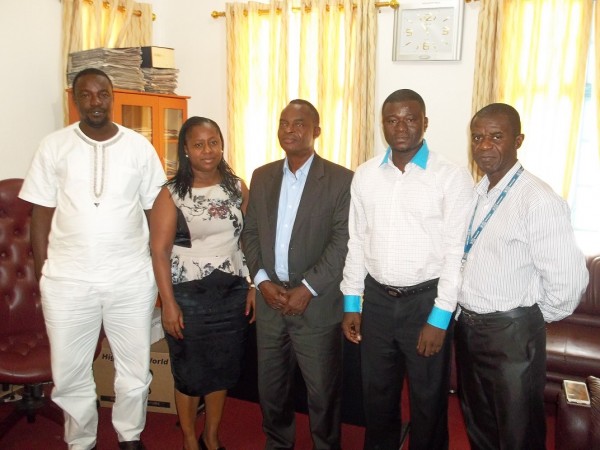
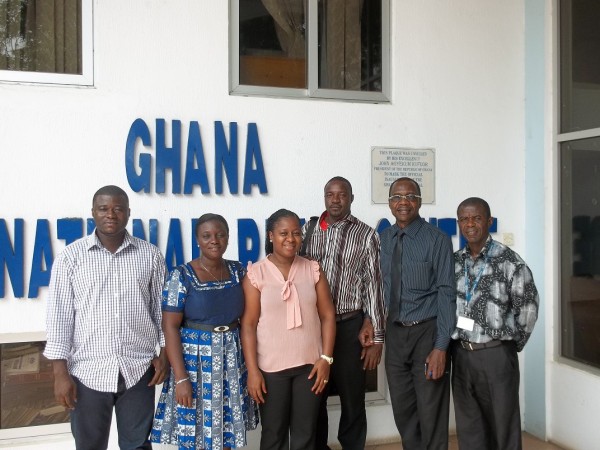
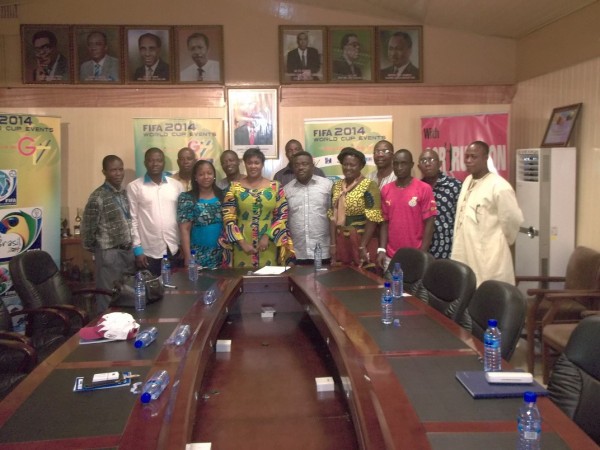
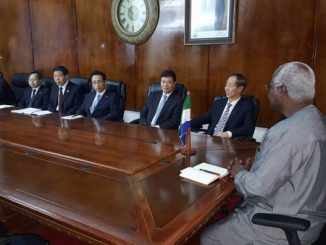
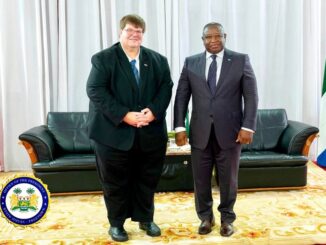
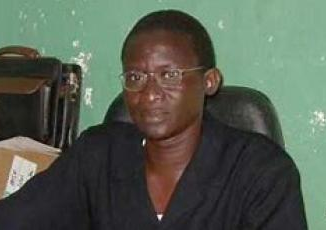
Leave a Reply